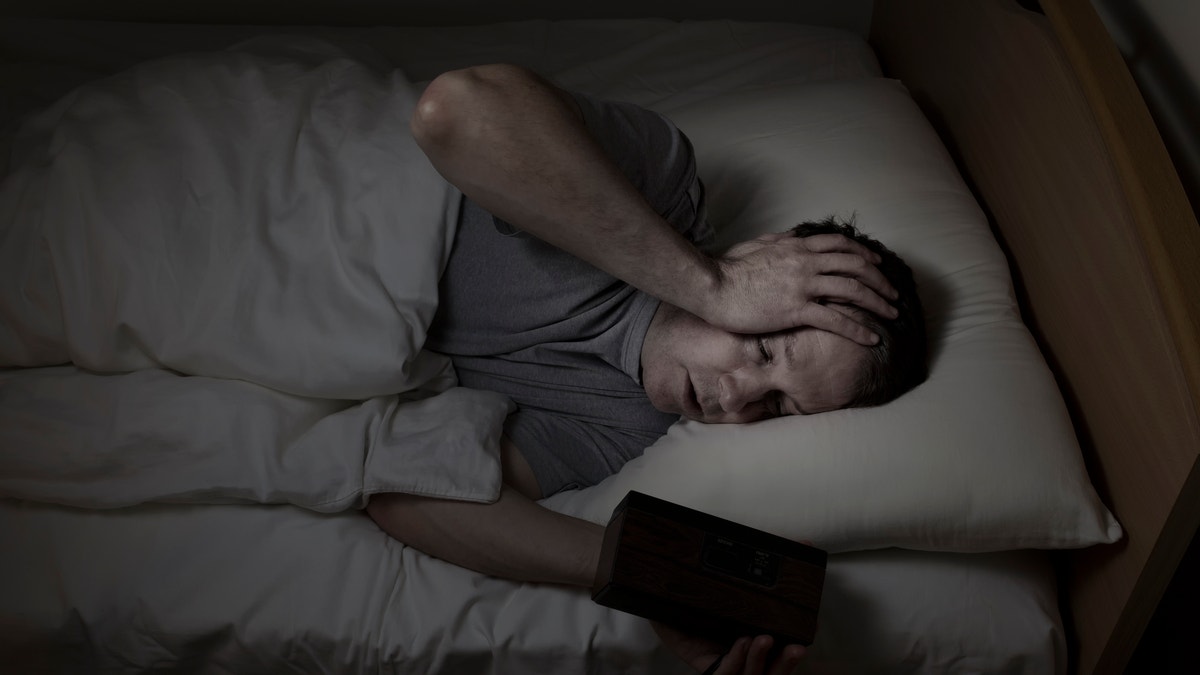
Mature man, eyes open with one hand holding clock and the other his own forehead, cannot sleep at night from insomnia (tab1962)
There are simple, and sometimes surprising, ways to beat that awful feeling of waking up at 4 in the morning and not being able to fall back to sleep. For some, the answer could be watching television at night differently.
Psychologists call this early morning awakening. Everyone experiences this occasionally, but for some it occurs so often that it becomes an insomnia disorder. It happens more as people hit 60, but it can afflict younger people, too—and run in families: Certain genetic mutations can cause circadian rhythm disorders.
About 30% of American adults have symptoms of insomnia each year, studies have found. And about 10% of the population has chronic insomnia, which is defined as difficulty sleeping at least three times a week for three months or more. There are three kinds of symptoms of insomnia: difficulty falling asleep at bedtime, waking up in the middle of the night and rising too early in the morning. Most people with chronic insomnia have more than one symptom.
Chronic insomnia is commonly treated with medication and behavioral therapy. Both tend to work, studies show. But drugs like Ambien and Lunesta aren’t very beneficial for early morning awakening, since they leave the bloodstream—and lose their efficacy—so quickly, says Daniel J. Buysse, a professor of psychiatry and clinical and translational science at the University of Pittsburgh School of Medicine. “Right when the person needs it, the medication is exiting their blood,” he says.
Other drugs like temazepam, lorazepam and doxepin (Silenor) that stay in the system longer, are better choices, he says. Cognitive behavioral therapy for insomnia, known as CBT-I, typically includes sleep restriction, or limiting the amount of time patients spend in bed when they are unable to sleep, and stimulus control, or keeping the bedroom dedicated to just sleep and sex.








































